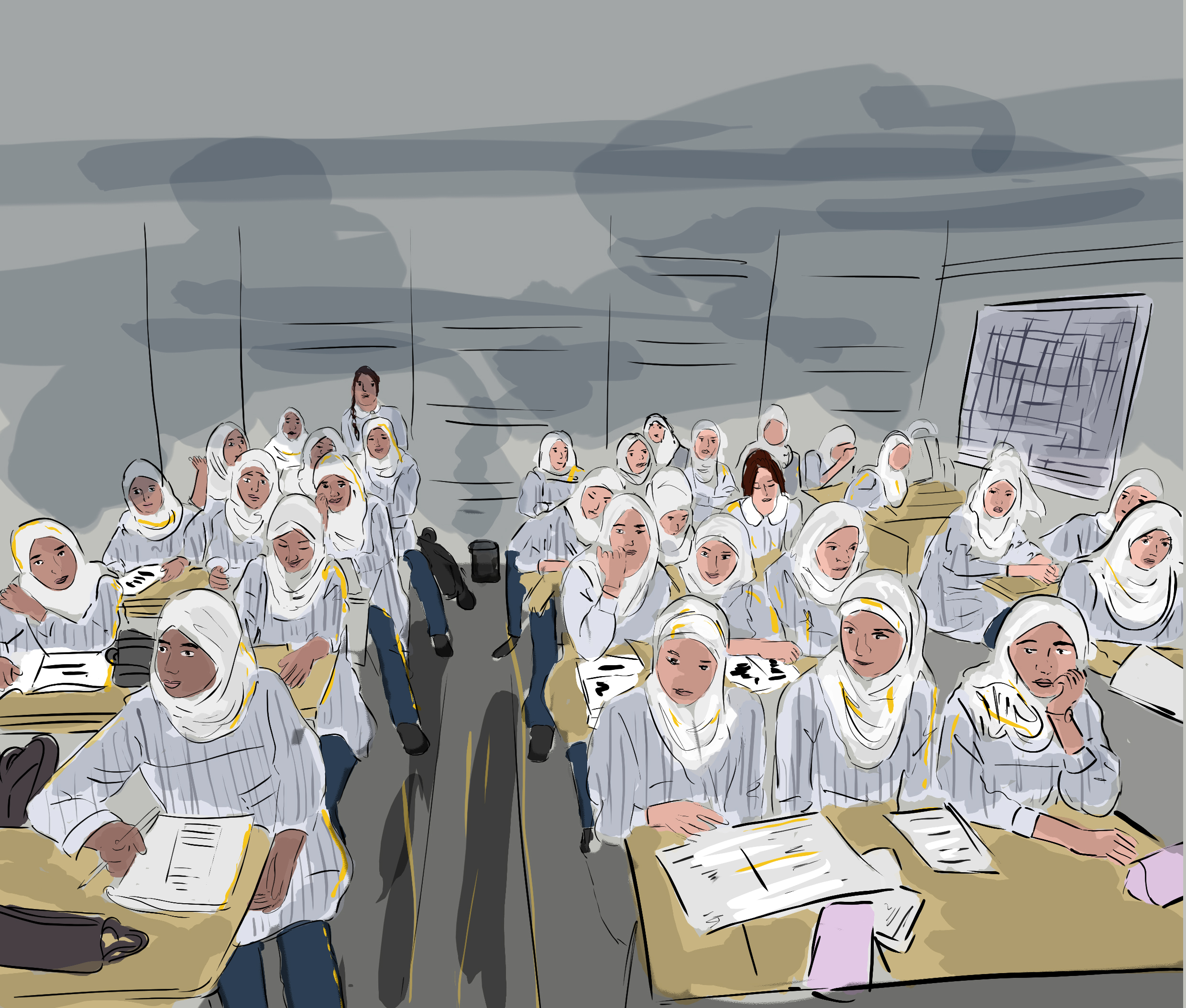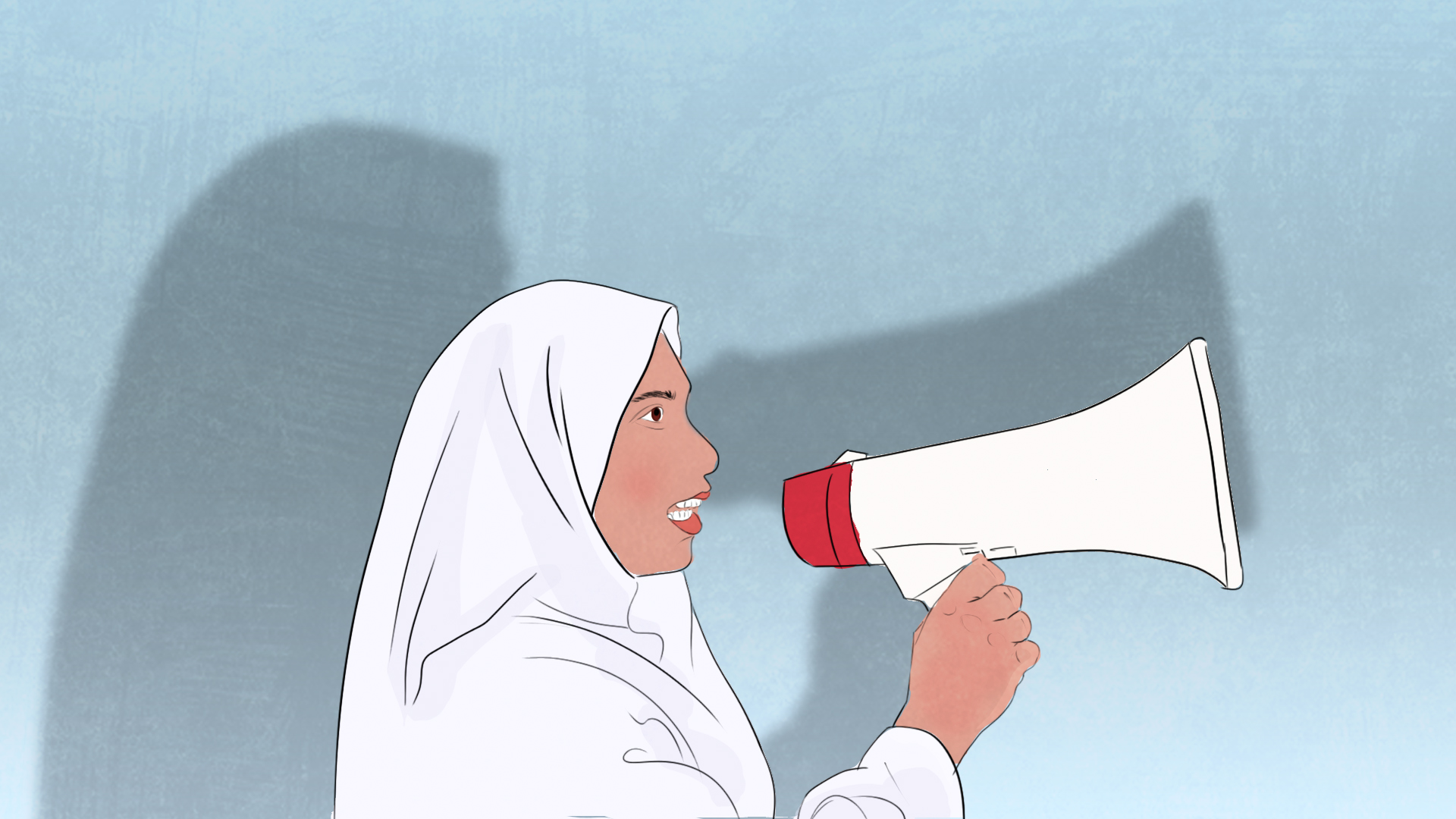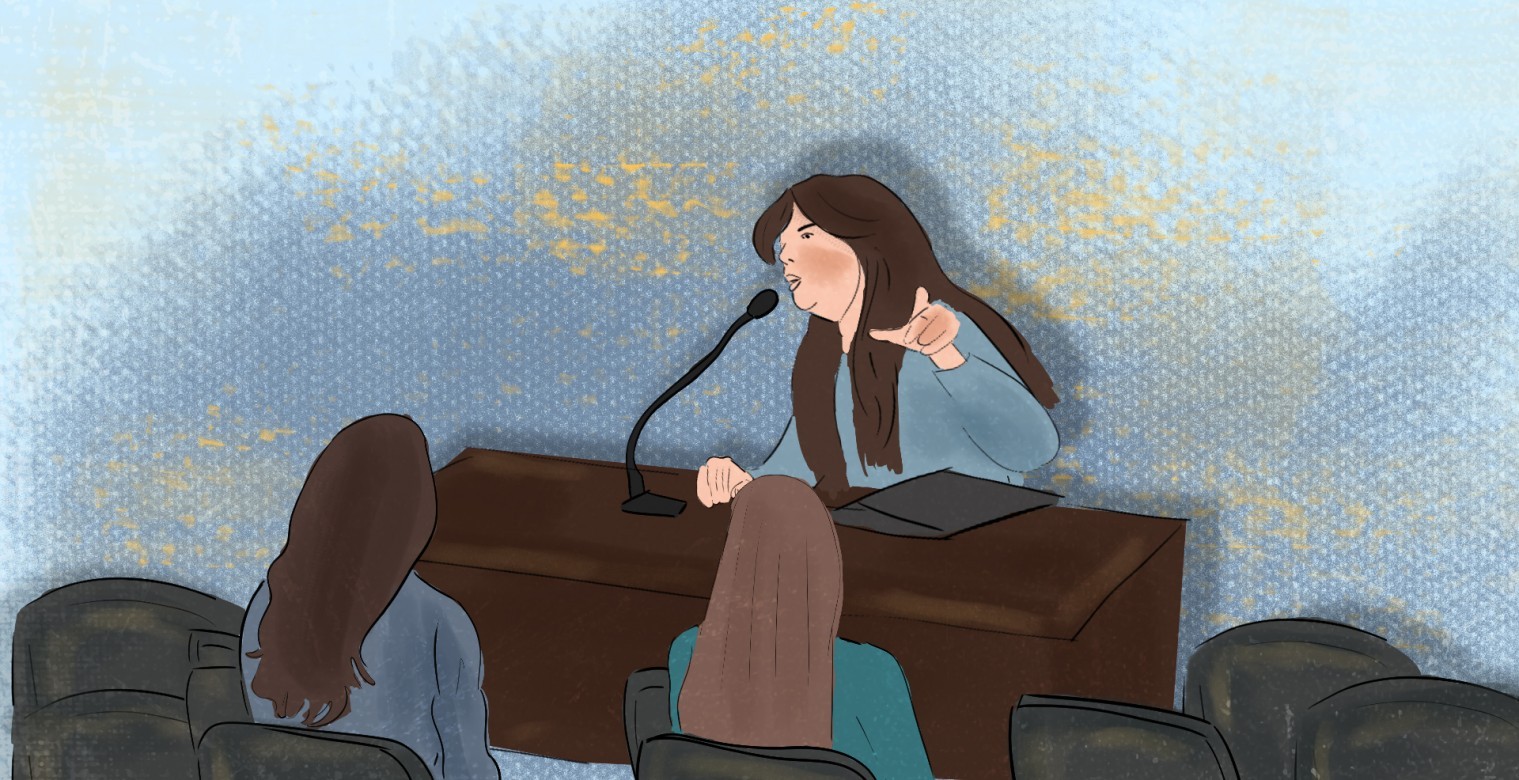Salam Alejla
For years, women have struggled on all fronts to find a place for themselves in decision-making within society, in various aspects. In some cases, it was difficult for them to hold high political positions. Therefore, they sought to win the bet in civil society institutions that intersect with many of their needs and requirements in society. Have they been able to achieve their ambition?
According to a study conducted by the Employees' Bureau in 2017, the percentages of women in the civil service industry in decision-making levels show that the percentage of women in the top and first categories of grades according to the law was 11% compared to 89% for men. While in the second category, it increases to 48% female compared to 52% male.
Experts in women's affairs and rights in Gaza believe that the presence of women in civil society institutions is still limited and unequal to men, especially in higher positions that are still far from the presence of women.
Fidaa Jabr, a pharmacist, believes that her dream of adding the title of president of the pharmacists' union to her name is still far-fetched. She told "Last Story", "Since I was a student, I have dreamed of representing my fellow pharmacists to demand our rights, the least of which is the establishment of a pharmaceutical factory in Gaza that suits what we study theoretically during five years of study."
The pharmacist added, "It is not only about general needs in the community of male and female pharmacists, but it also goes beyond that to the requirements of female pharmacists. How can high-level positions occupied by men understand the challenges she faces, such as the need for more respect for her privacy while working in pharmacies that are often located in public places?".

What Jabr refers to intersects with what Nora Fouad (a pseudonym) said, who was forced to leave her job in the field of law after finding herself unable to fulfill a large part of the desires and needs of women she represented in court, due to the bias of the law in some of its articles towards men, according to her.
The unemployed lawyer Nora tells "Last Story", "We have a lot of problems in personal status laws, inheritance, and women's issues in particular, and these issues require women lawyers to occupy prestigious positions in their field because they alone are capable of understanding the needs of women themselves and advocating for their rights."
Both women agree that society in all its sectors is a partner in weakening women's participation in higher positions and reaching places that are more capable of decision-making, due to its stereotypical view of women and their roles, which are limited to certain socially concentrated positions, while denying them leadership positions even if it intersects with the nature of her educational level.
What Fidaa and Nora have put forward may coincide with other proportions reached by a study conducted by the Women's Center for Legal and Social Guidance on civil service workers, which concluded that this sector employs approximately 85,000 employees. However, the proportion of women occupying high positions is still low, reaching only 6.9% in the senior job category in the Gaza sector.
It is immediately noticeable that the percentage of women in the first job category is higher, reaching three times their percentage in occupying higher positions, reaching 18.8%. This is despite the fact that the percentage of working females in the field reaches 45% versus 55% of males, and is concentrated in the fields of health, education, and teaching, indicating the consolidation of traditional gender roles and ideas in the prevailing culture.

Given these statistics, the question arises: what are the reasons that prevent women from occupying higher positions in civil society institutions? The Coordinator of the Monitoring and Research Unit at the Coalition for Integrity and Accountability (AMAN), Hadeya Shamo'on, attributes this to what she calls the "cultural map" in Palestine.
In an interview with "Last Story", Shamo'on stated that the latest studies show women's participation in the boards of directors of civil society institutions is 24.6%, while the percentage of women holding the position of board chairman is 4.9% compared to 95% for men.
Shamo'on interprets this as being due to the fact that those running these institutions are from the same societal environment that limits women's roles to a certain framework, except for some organizations where women head the boards of directors. She also sees that one of the reasons is that high positions in society are more suited to men than to women according to the cultural and intellectual extension of the society.
According to Shamo'on, the weak presence of women in advanced positions is due to the fact that these positions require travel, mobility, and direct interaction with organizations and government institutions that society prefers to keep women away from and limit their roles to production, reproduction, and lower positions instead of decision-making positions.
Despite the fact that Palestinian law does not limit women to specific job levels, according to lawyer Malak Al-Sakani, the cultural and intellectual extension mentioned by Shamo'on is still present. Al-Sakani said, "the Palestinian labor law does not specify the gender of those who hold positions, which in itself reflects equal employment opportunities regardless of gender, but the problem lies in the discriminatory and unfair use of these laws within institutions and workplaces."
Although there have been amendments to the laws regulating Palestinian civil service work, according to Law No. 23 of 2005 and the issuance of implementing regulations for the law, the General Employees' Council has become the legal reference that defines the powers of civil service work and frames it in a way that protects the rights of workers in this field and preserves equal opportunities. However, the civil service sector still suffers from clear gaps in terms of gender equality.
Shamo'on believes that there are fundamental principles that open opportunities for women and refine their personalities to become capable of carrying the message of women, increase their awareness of their rights, and the challenges they face. These principles include education, cultural and political awareness, as well as volunteering and involvement in initiatives, which help women prove their presence in every position and site.
The efforts of women towards improving their conditions and striving to attain a status that befits them remain the only way to achieve their rights and obtain what they deserve in all fields and positions.





